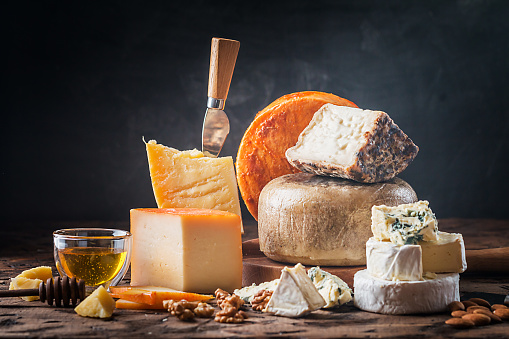The coffee market is a global industry encompassing the cultivation, processing, distribution, and consumption of coffee beans. As one of the most widely traded commodities worldwide, coffee holds cultural significance and economic importance in numerous regions. This article delves into the multifaceted aspects of the coffee market, exploring its history, production processes, varieties, global trade dynamics, and the evolving landscape of consumer preferences.
History:
The cultivation of coffee can be traced back to ancient times, with origins in the coffee forests of Ethiopia. Over the centuries, coffee spread across the Arab world, eventually making its way to Europe and beyond. The establishment of coffee plantations in regions such as Central and South America played a pivotal role in shaping the global coffee industry, turning coffee into a globally consumed beverage.
Cultivation and Production:
Coffee cultivation involves the cultivation of coffee plants, primarily Arabica and Robusta varieties, in suitable climates. The process includes planting, harvesting, and processing the coffee cherries to extract the beans. The coffee belt, located between the Tropics of Cancer and Capricorn, provides optimal growing conditions. Sustainable farming practices, fair trade initiatives, and certifications like Rainforest Alliance contribute to ethical and environmentally conscious coffee production.
Varieties and Processing Methods:
Arabica and Robusta are the two main species of coffee beans, each contributing distinct flavors and characteristics to the final cup. Varieties within these species, such as Bourbon, Geisha, and Typica, further diversify the coffee market. Different processing methods, including washed, natural, and honey process, influence the flavor profiles by affecting the removal of the coffee cherry pulp and the drying of the beans.
Global Trade Dynamics:
Coffee is a major player in international trade, with coffee-producing countries exporting their harvests to meet global demand. Brazil, Vietnam, Colombia, Ethiopia, and Honduras are among the leading coffee-producing nations. Organizations like the International Coffee Organization (ICO) work to establish fair trade practices, stabilize prices, and promote sustainability in the coffee market.
Coffee Market Classifications:
The coffee market is often categorized based on bean type, roast level, and brewing method. Bean types include Arabica and Robusta, while roast levels range from light to dark. Brewing methods, such as espresso, drip, and French press, offer diverse ways for consumers to experience and savor coffee. Specialty coffee, characterized by high-quality beans and unique flavors, has gained popularity as consumers seek a more refined coffee experience.
Emerging Trends:
The coffee market continually evolves to meet changing consumer preferences and trends. Specialty coffee shops, single-origin beans, and cold brew coffee have surged in popularity, reflecting a demand for unique and artisanal experiences. Sustainability initiatives, including direct trade relationships between roasters and farmers, contribute to the ethical sourcing of coffee beans.
Challenges and Opportunities:
The coffee market faces challenges such as climate change affecting growing conditions, price volatility, and economic disparities within the supply chain. However, these challenges have also spurred innovations in sustainable practices, technological advancements in coffee processing, and initiatives focused on improving the livelihoods of coffee farmers. The growing popularity of premium and specialty coffees presents opportunities for differentiation and market growth.
Quality Standards and Certifications:
Quality standards and certifications play a crucial role in maintaining the integrity and authenticity of the coffee market. Organizations such as Fair Trade, Rainforest Alliance, and UTZ Certified establish criteria for ethical and sustainable coffee production. These certifications assure consumers that the coffee they purchase adheres to certain environmental, social, and economic standards.
Technology and Innovation:
Technology has significantly impacted various aspects of the coffee market. From precision agriculture and IoT (Internet of Things) applications in coffee plantations to advanced roasting and brewing equipment, innovation is driving efficiency and quality in the coffee supply chain. Mobile applications and online platforms also connect consumers with coffee producers, providing information about origin, processing methods, and sustainability practices.
Coffee Culture and Community:
Coffee is not merely a beverage; it is a cultural phenomenon that brings people together. The rise of coffee culture has led to the proliferation of specialty coffee shops, third-wave coffee movements, and coffee-centric events. Coffee enthusiasts actively engage in cupping sessions, coffee tastings, and community-driven initiatives that celebrate the artistry and diversity of coffee.
Health Considerations:
The health aspects of coffee consumption have been a subject of research and discussion. While moderate coffee consumption has been associated with various health benefits, including antioxidants and improved cognitive function, excessive intake may have potential drawbacks. The market has responded to health-conscious consumers with the introduction of low-acid, decaffeinated, and functional coffees that cater to specific dietary preferences and health considerations.
E-Commerce and Direct-to-Consumer Trends:
The advent of e-commerce has transformed the retail landscape for coffee. Direct-to-consumer models, facilitated by online platforms, enable coffee producers and roasters to reach a global audience. Subscription services, where consumers receive freshly roasted beans at regular intervals, have become popular, fostering direct relationships between producers and consumers.
Impact of Climate Change:
Climate change poses a significant threat to coffee production, affecting the growing conditions and yields of coffee crops. The industry is increasingly focused on climate-smart agriculture practices, including shade-grown coffee, agroforestry, and sustainable water management, to mitigate the impact of climate change on coffee cultivation.








